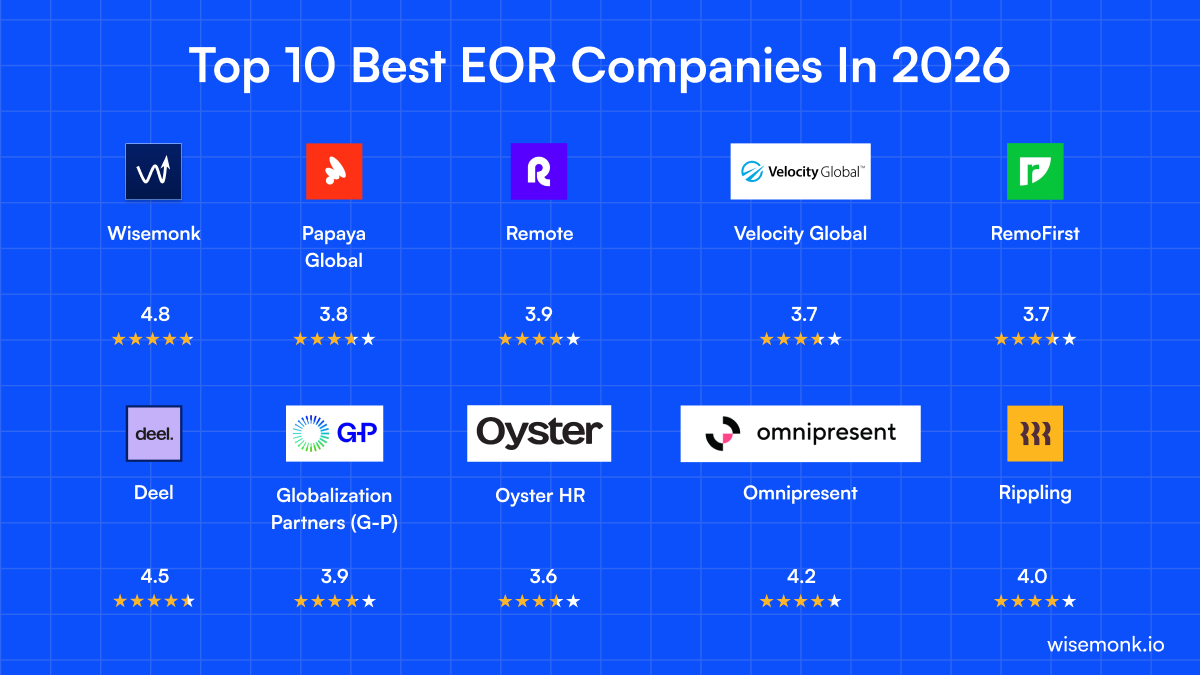Thinking about expanding your business to the Netherlands? With its stable economy, EU gateway status, and highly educated, multilingual talent, the Netherlands makes international hiring easier than you might expect. Still, Dutch employment law can be a maze. That’s exactly where an Employer of Record Netherlands helps; you can hire employees the right way, without setting up a local entity.
Now, let’s unpack the building blocks of Dutch employment law and see why compliance is so crucial
What Is the Dutch Employment Law Framework?[toc=Employment Law Framework]
Navigating the Dutch employment law might sound intimidating, but a little clarity goes a long way. Here’s what shapes every employment relationship in the Netherlands:
- Employment Contracts: Every hire needs a clear contract, think salary, notice period, role, working hours, and mention of any collective labor agreement (CAO). No more than three fixed-term contracts or two years before an indefinite contract kicks in.
- Works Councils: Got 50 or more Dutch employees? You’ll need a Works Council. This group gives staff a say in key company decisions. Transparency is the name of the game.
- Collective Labor Agreements (CAO): About 80% of Dutch employees fall under a CAO. These agreements define pay, leave, pensions, and more. Check your industry for any mandatory CAOs.
- Dismissal Protections: Dutch law shields employees from unfair dismissal. For layoffs or long-term illness, you must get Employee Insurance Agency (UWV) permission; other cases go through the courts.
Understanding these basics helps your company avoid compliance missteps that can derail a smooth Dutch market entry.
What Are the Key Benefits of Using a Netherlands EOR?[toc=Key Benefits of EOR]
From our practical experience as an Employer Of Record for global companies, here’s how you benefit:
- No Complex Entity Setup: Skip months of paperwork and costs. You don’t need to form a local entity to start hiring.
- Ironclad Compliance: EORs keep every employment contract, salary, and benefit in line with Dutch law and statutory benefits.
- Access Dutch Talent, Fast: Whether hiring local or international employees, Employer Of Record services streamline your onboarding process and open doors to the Dutch and EU talent pool.
- Simple EU Entry: Once you have a record in the Netherlands, scaling across Europe becomes much easier.
These benefits let you focus on growing your business, not wrestling with the nitty-gritty of Dutch compliance.
How Does Payroll and Tax Compliance Work in the Netherlands?[toc=Payroll & Tax Compliance]
From our hands-on experience running payroll for international employers, we know Dutch payroll can get complicated fast. Here’s how an Employer Of Record makes your life easier:
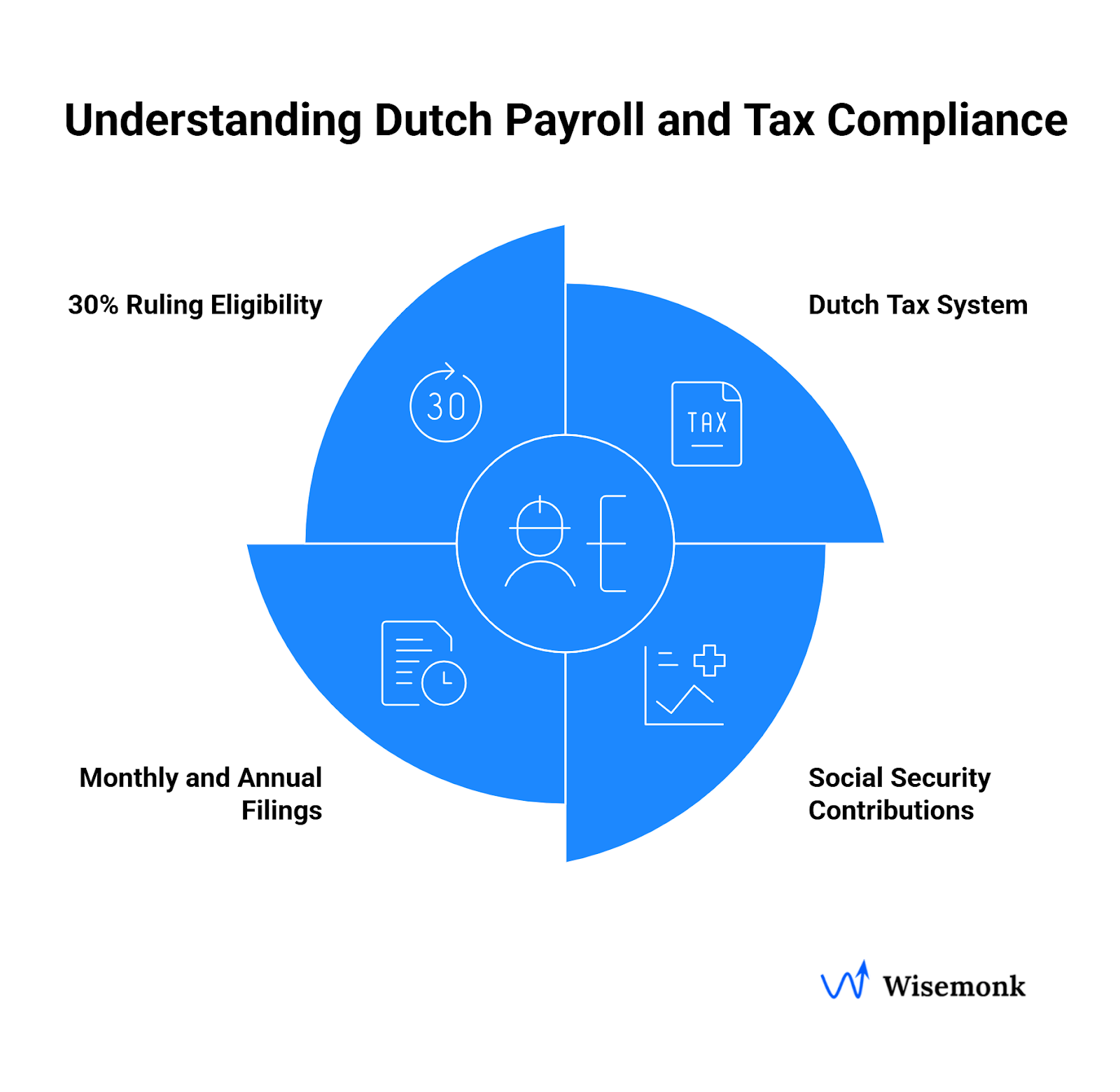
- Dutch Tax System: Employees and companies must pay payroll tax, income tax, and employer contributions, all overseen by the Dutch tax authorities.
- Social Security Contributions: Both employer and employee pay social insurance contributions, including for unemployment insurance, disability insurance, and health insurance, coordinated by the Employee Insurance Agency (UWV).
- Monthly and Annual Filings: EORs ensure payroll, tax, and national insurance contributions are filed accurately and on time with local authorities.
- 30% Ruling Eligibility: Highly skilled expatriates may benefit from the 30% ruling, which exempts part of their income from tax for up to five years, provided they meet certain requirements. This benefit is a powerful attraction for international employees and is managed in coordination with tax authorities.
Accurate filings and on-time compliance mean you avoid costly fines and keep employees happy.
What Employee Benefits and Entitlements Are Mandated by Dutch Law?[toc=Employee Benefits]
Now that we’ve explored how payroll and tax compliance work in the Netherlands, let’s take a closer look at the mandatory employee benefits you need to provide to stay compliant and competitive in the Dutch market:
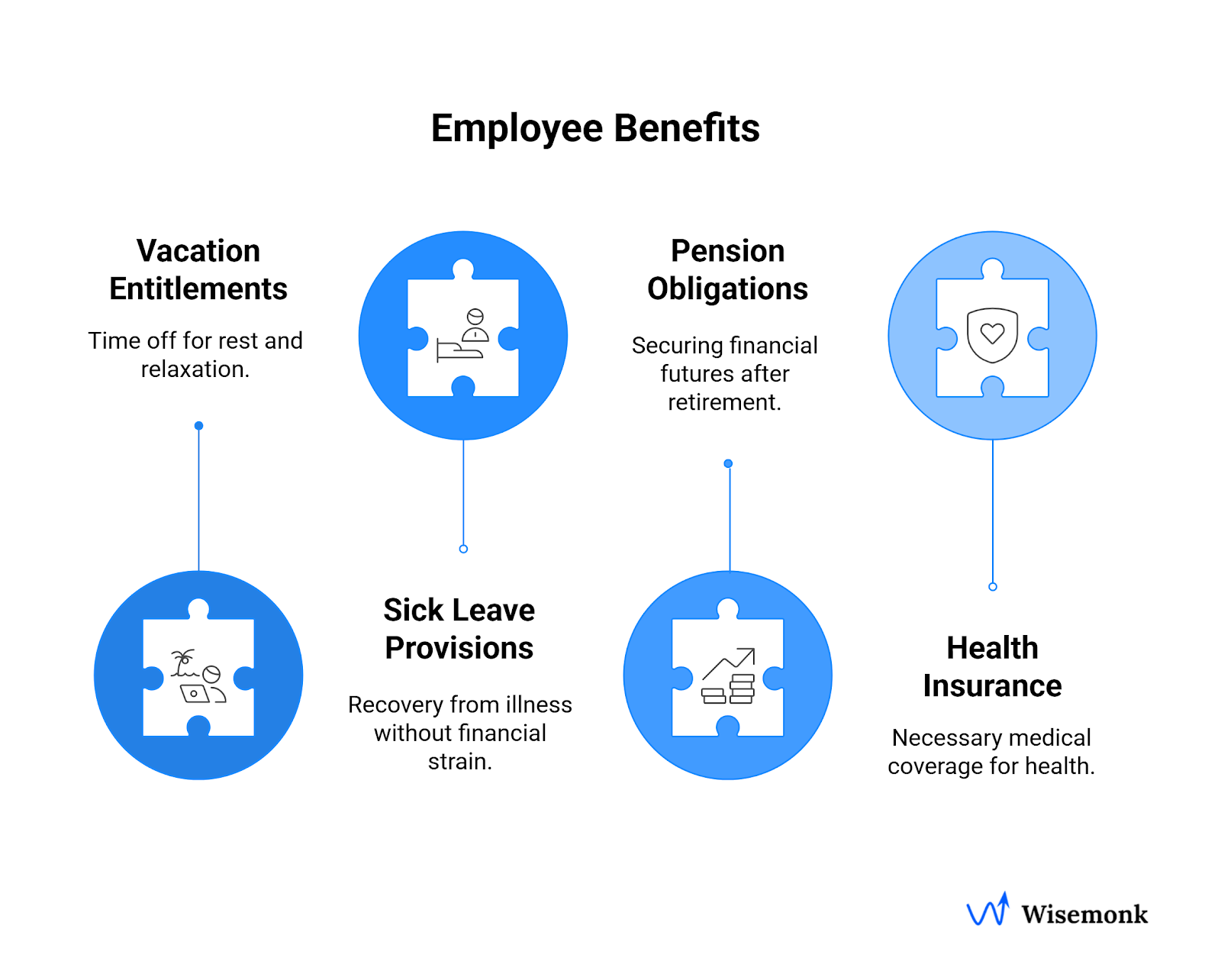
- Vacation Entitlements: By law, Dutch employees receive at least four times the weekly working hours as paid annual leave, not including public holidays. Many CAOs grant additional vacation or “holiday allowance” (usually 8% of the employee's salary).
- Sick Leave Provisions: Employers must pay at least 70% of the employee’s salary during sick leave, usually up to two years.
- Pension Obligations: The Dutch pension system is multi-layered: state pension (AOW/Age Pensions Act), industry or company pension (second pillar), and private pension savings. Employers contribute to occupational pensions according to the sector’s collective bargaining agreement.
- Health Insurance: Every employee must have basic health insurance, and employer contributions may be required as part of statutory benefits.
Offering the right benefits helps you stay compliant and makes you far more appealing to Dutch employees.
What Is the Hiring and Onboarding Process with a Netherlands EOR?[toc=Hiring & Onboarding Process]
From our experience onboarding global employees, we know a smooth, compliant process is key to getting your new hires productive quickly. Here’s a clear step-by-step breakdown of how it typically works with a Netherlands EOR:
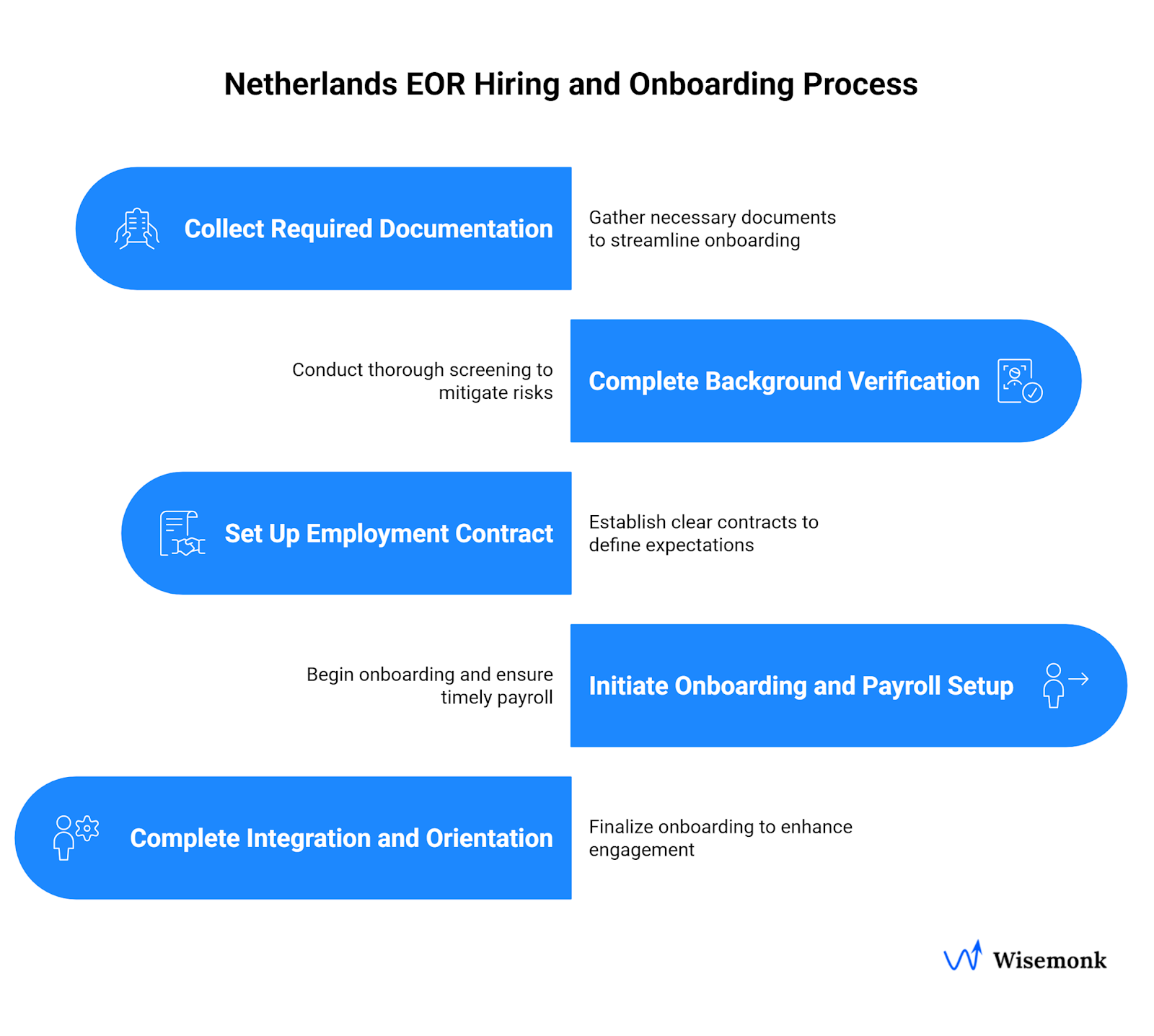
- Step 1: Collect Required Documentation: The first step is gathering essential employee details, including their BSN (citizen service number), valid identification (passport or Dutch ID), and for non-EU employees, approved work permits. This information ensures compliance with Dutch registration and tax authorities.
Having all documents ready upfront speeds up the entire onboarding process. - Step 2: Complete Background Verification: Next, thorough background checks are performed. This involves verifying prior employment, professional qualifications, and legal right to work in the Netherlands. These checks protect both your business and ensure legal eligibility.
Proper screening reduces risk and safeguards your company from compliance issues. - Step 3: Set Up Employment Contract: The Employer Of Record drafts and issues an employment contract aligned with Dutch employment law and collective labor agreements (CAO) where applicable. Contracts specify salary, benefits, probationary periods, notice periods, and statutory obligations like sick leave and pension arrangements.
Well-structured contracts clarify expectations and fulfill legal employer responsibilities. - Step 4: Initiate Onboarding and Payroll Setup: Once contracts are signed, the EOR sets up payroll processing. This includes salary payments, tax withholdings, payroll tax filings, and social security contributions. Employees are also enrolled in required benefits programs such as health insurance and pension schemes.
Efficient payroll setup ensures employees are paid accurately and on time from day one. - Step 5: Complete Integration and Orientation: The EOR provides ongoing support during onboarding, from document verification to answering employee queries and facilitating smooth integration into your company culture and processes.
Effective onboarding boosts employee engagement and retention.
Onboarding Timeline
Typically, the entire onboarding and hiring process through a Netherlands EOR takes 2 to 4 weeks, depending largely on permit approvals and document readiness. This quick turnaround helps you hire effectively without delays.
That means your employees start working fully compliant with Dutch labor laws, and receiving their salary without gaps.
This step-by-step process ensures your hires are compliant with all local labor laws, statutory benefits, and payroll obligations, taking the complexity out of expanding your workforce in the Netherlands.
To learn more (Employing staff in Netherlands)
What Should You Know About Managing a Dutch Workforce?[toc=Workforce Management]
Dutch work culture is direct, consensus-driven, and values work-life balance. We’ve helped many employers build successful global teams, and we’ve found these approaches make all the difference:
- Work Culture: Dutch employees expect honesty and inclusion. Being direct and collaborative is always appreciated.
- Communication: Maintaining Open channels, regular updates, and clear expectations helps improve trust and retention.
- Performance Management: Focus on results, offer feedback throughout the year, and support professional development.
- Work-Life Balance: Dutch labor law values leave and personal time; we help you structure contracts and benefits to match those cultural expectations.
These simple steps boost morale and make you stand out in the Dutch talent market.
What Are the Rules for Termination and Dismissal in the Netherlands?[toc=Terminational & Dismissal Procedures]
Dutch employment law provides strong protection against unfair dismissal:
- UWV Permission: For economic or long-term illness-related dismissals, employers need prior UWV approval. For other reasons, a court order is required.
- Notice Periods and Severance Pay: Notice periods and requirements for severance pay are set by collective labor agreements or the employment contract. Transition payments may apply even for lawful dismissals.
- Transition of Undertakings: Employees’ rights and contracts transfer to a new legal entity in business acquisitions, including all statutory benefits and accrued rights.
- Risk Mitigation: Working with an EOR minimizes compliance risks and helps you follow all local labor laws and employment regulations.
Cost Analysis and ROI: How Does Using a Netherlands EOR Compare?[toc=Cost Analysis & ROI]
- Fee Structures: EOR service fee structures are transparent and usually include payroll tax, employer contributions, and record service charges.
- Hidden Costs: A local legal entity must budget for additional compliance, legal, and HR costs for meeting the Dutch government’s requirements.
- ROI: Speed of hiring, minimized compliance risks, and predictable employer costs make EOR a smart choice for international hiring and global payroll Netherlands needs.
Frequently asked questions
What is the 30% ruling and how does it work?
The 30% ruling allows employers to give highly skilled foreign employees a tax-free allowance of up to 30% (recently phased down in 20- and 10%-steps for new arrivals) of their gross salary, reducing income tax for up to five years. To qualify, the employee must meet salary thresholds and eligibility is coordinated with the Dutch tax authorities.
How difficult is it to terminate employees in the Netherlands?
Termination is tightly regulated: most dismissals require permission from the Employee Insurance Agency (UWV) for economic or health reasons, while other cases require a court order. Proper notice and severance pay (transition payment) apply, and all procedures must comply with Dutch law.
What are the requirements for Works Councils?
Dutch companies with 50+ employees must establish a Works Council, which has co-determination rights on issues like working conditions and employment regulations.
How does the Dutch pension system work?
The Netherlands pension system consists of three pillars: a state pension under the Age Pensions Act, occupational/company pensions, and voluntary private pension savings. Employers and employees both contribute, and many CAOs mandate participation in sectoral pension schemes.
What are the costs of EOR services in the Netherlands?
EOR providers typically charge a fixed monthly fee per employee, covering payroll, compliance, statutory benefits, employer contributions, and record service. This model provides budget predictability versus potential hidden costs and risks in managing a local entity.
What is the difference between payroll and Employer of Record (EOR)?
Payroll is just the process of paying employees, including taxes and deductions. An EOR legally employs workers on your behalf, handling payroll plus compliance, benefits, and HR responsibilities.
When should you use an Employer of Record?
Use an EOR when hiring employees in another country or region without a local entity, or when you want to outsource compliance, payroll, and HR management.
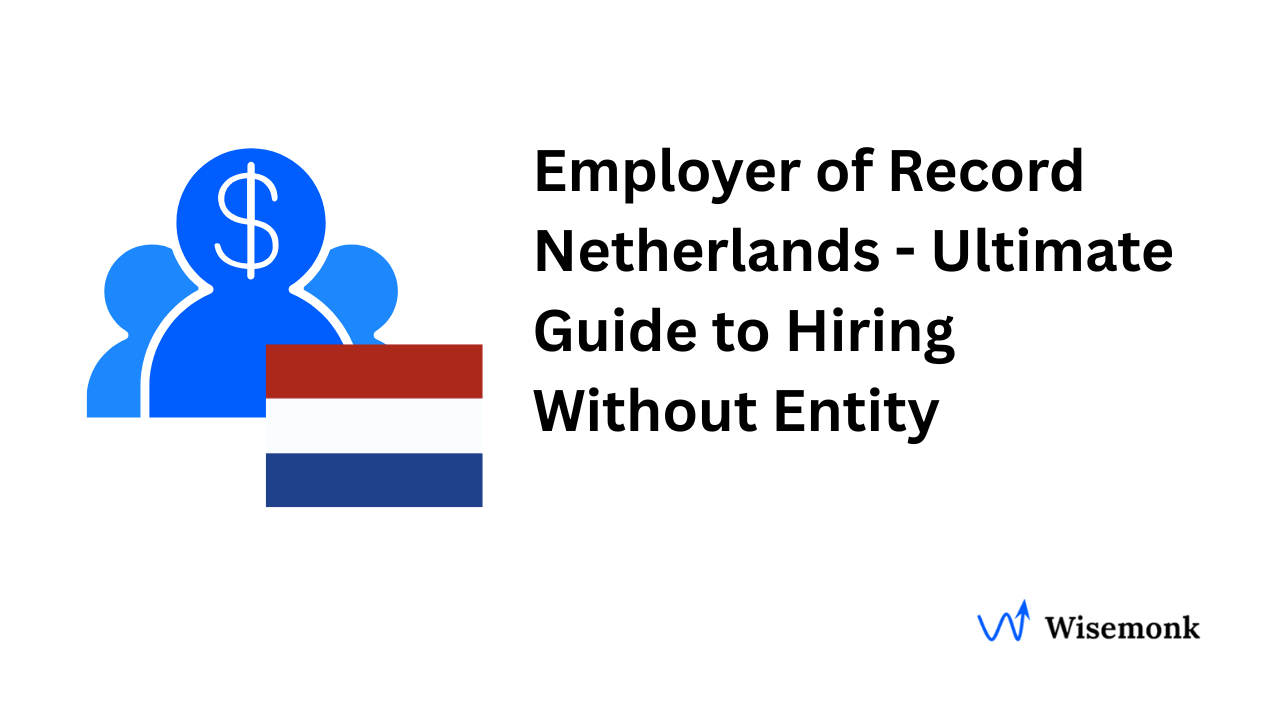
.png)
%20(1).webp)
